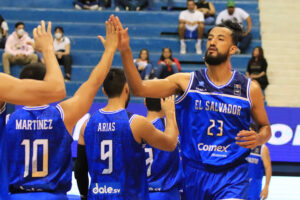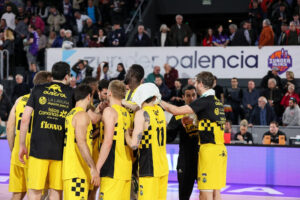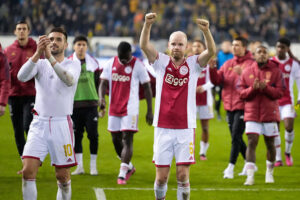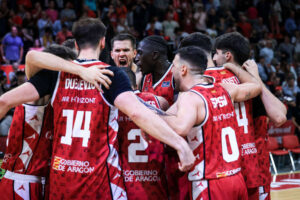The Cologne has lived stages of maximum glory in German football. Yes, believe it or not. Together with Eintracht Frankfurt, Borussia Dortmund, Stuttgart, Schalke, Werder Bremen and Hertha Berlin, it is one of the founding clubs of the Bundesliga that are currently in the first division (Bayern Munich only joined in 1965).
In that season, in 1963, Cologne were crowned the first Bundesliga champion in their history, a title that they will carry into eternity. His players then became legends, and even some like Wolfgang Overath gained international fame due to their participation in the World Cups in England in 1966, and Mexico, in 1970.
Wolfgang Overath, a legend of international fame in the 60s
By then, another shining star had already appeared on the Bundesliga horizon: Bayern Munich, who won their first league title in the 1968/1969 tournament. But Cologne remained a benchmark for German football in terms of competitiveness, and until the early 1970s they topped the Bundesliga’s historic table. At the time of publishing this article (February 5, 2021), Colonia ranked ninth in the so-called “eternal table.”
Despite Bayern’s increasingly clear dominance, Cologne experienced more championship days in the 1977/1978 tournament, under the baton of Hennes Weisweiler, a coach still revered in the city of the Gothic cathedral. Then the great rivalry between the club and Borussia Mönchengladbach was forged, which together with Bayern was the measure of all things in German football.
Ups and downs and descents
The proud fans of Colonia got used to their team playing in the first division, although the club oscillated in the middle table, with a few exceptions. The 90s marked the first crises.

Christoph Daum (2nd from left) and his legendary verbal duels with Uli Höneß (1st from right)
In the 1992/1993 tournament, with coach Morten Olsen, Cologne finished 12th in the table. But, unlike other times, he could no longer return to the top places, and in the 1997/1998 season came the shock: the club was relegated to the second division for the first time in its history. Since then, the Colony have fallen five more times in purgatory.
Daum y Stöger
In this carousel there have been two exceptional moments, with which the fans refresh their dented pride. One occurred in the 2008/2009 tournament at the Allianz Arena in Munich. With goals from Fabrice Ehret and Daniel Brosinski, Cologne beat the multi-champion at the Munich hometown.
On the Cologne bench, coach Christoph Daum had a kind of revenge against Uli Höneß, Bayern president. Many attribute to Höneß the denunciation of the year 2000, which the media turned into an operetta, about cocaine use that cost Daum the position of German coach. In the traditional Kneipen where the brotherhoods of Cologne fans meet, that victory is still remembered with fervor.
The second taste of glory for Colonia in recent years was quite a surprise. Led by Austrian Peter Stöger, the club returned to the first division in the 2014/2015 tournament. In his fourth tournament as Cologne manager, Stöger led the team to European competition, finishing fifth in the 2016/2017 season. Cologne had not made the top five of the Bundesliga since 1992.

With Peter Stöger, the football carnival became a relegation drama
But the following year, the Colony crashed loudly and the carnival turned into drama: the club fell again. He has currently been in the top circuit for two seasons. The possibility of a seventh descent is real. Although they see the last two places, Schalke and Mainz, from afar, Cologne is only one point away from a playoff site with which they would have to fight for permanence against third place in the second division.
The match against the Mönchengladbach colts, in addition to reliving a German football classic, is life and death for Cologne and, above all, decisive in the fate of coach Markus Gisdol.










